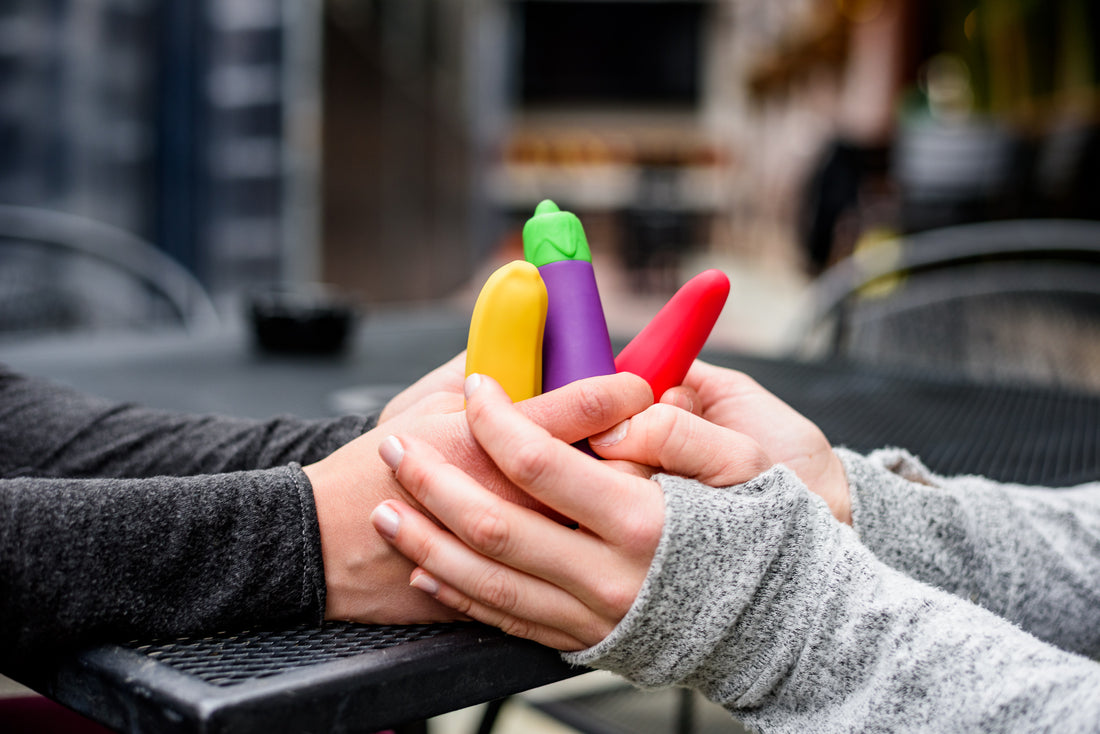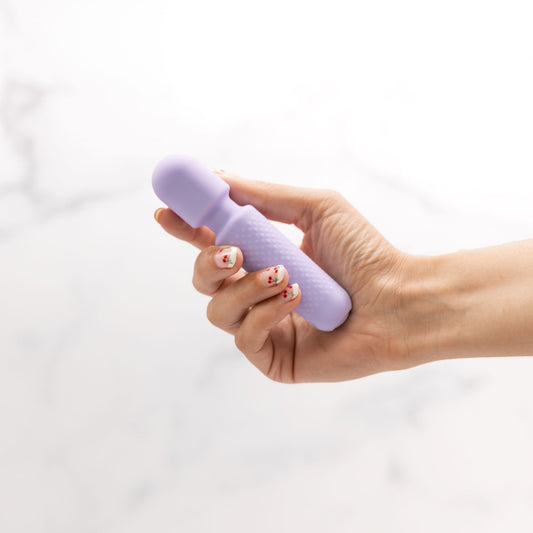What is an Orgasm?

For lots of folks, orgasms can be intense, extremely pleasurable. Orgasms happen through different types of stimulation, and research suggests that orgasms have tons of benefits for our health, & even our relationships. It is important to know that not everyone enjoys orgasms & some people have a hard time achieving orgasms–we all find pleasure in different ways!
Orgasm Misconceptions
Due to the lack of knowledge & consensus about orgasms, combined with how many folks place orgasms on a pedestal & regard them as the “end goal of sex,” many misconceptions about orgasms have developed & have seeped into our sex lives. It is estimated that around 10-15 percent of people with vulvas have never had an orgasm (Rosen, 2000).
There’s a misunderstanding that this suggests it's simply “more difficult” to achieve an orgasm if you have a vulva, versus if you have a penis. However, other studies have come to the conclusion that vulva-owners are much more likely to orgasm through self-stimulation, if they are having sex with another vulva-owner, or if penile-vaginal stimulation is NOT the main/only sexual act. Studies like these provide insights & suggestions for improvement about the way in which we currently define sex, and how the journey to an orgasm is a very individual experience.
Types of Orgasms
There are also quite a few misconceptions about types of orgasms, due to individuals such as Sigmund Freud who suggested that clitoral orgasms were “immature”, and that vaginal orgasms signified a “healthy sexual response.” Many people have debunked Freud’s idea, claiming it to be highly inaccurate & harmful, and instead, sex educators suggest that vaginal orgasms are actually clitoral orgasms. Growing research & knowledge about the full structure & function of the clitoris has led people to understand their own pleasure & arousal templates.
Here are some types of orgasms from physical stimulation:
- "Pressure orgasms: orgasms that arise from the indirect stimulation of applied pressure. A form of self-stimulation that is more common in children.
- Relaxation orgasms: orgasm deriving from deep relaxation during sexual stimulation.
- Tension orgasms: a common form of orgasm, from direct stimulation often when the body and muscles are tense" (McIntosh, 2018).
(Note: Orgasms do not only occur during physical/sexual stimulation. There have been many reports of voluntary & involuntary orgasms due to mental stimulation or some medications)
Benefits of Orgasms

- "Oxytocin, aka the "love hormone," which facilitates feelings of attachment. It is also released during labor to help with baby bonding.
- Dopamine, which triggers intense feelings of reward, desire, and pleasure.
- Endorphins, the "natural opiates" that induce a sense of euphoria and reduce stress.
- Serotonin, which helps regulate mood, appetite, and sleep.
- Prolactin, the primary chemical that initiates milk production after pregnancy and plays a role in bonding, also makes us feel satisfied after orgasm" (Wade, 2021).
How to Have an Orgasm

Here are some of my tips:
- Explore & self-educate. Look at your genitals with a mirror to get a better idea of what's going on, & check out some diagrams if you need a refresher!
- Experiment with all your senses. Sometimes closing our eyes or blindfolding ourselves enhances our physical sensations & takes away visual distractions. Other times, visual stimuli may help us reach orgasm.
- Toys, toys, toys! There are so many amazing toys and aids, for all kinds of bodies! Emojibator has affordable & body-safe toys that can help you reach an orgasm/provide you with lots of smiles conversation starters!





